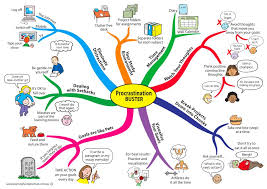One would think that the solution to procrastination (not doing it) is its exact opposite: doing it! That the cure is doing the very thing that is being avoided.
[Note: We must be careful using the word “cure” in regard to procrastination. We ought to think of procrastination itself as a cure. Trying to “cure” procrastination is identical to trying to cure a fever. Fever is the body’s attempt to “cure” an infection. A physician tries, instead, to eliminate the infection. Likewise, procrastination is an attempt (if misguided) to “cure” a personal difficulty. The underlying problem, for which a person uses procrastination as a solution, must be the focus. Curing procrastination–or concentrating on procrastination, then, distracts and delays an efficacious solution to the true emotional problem.]
Well it is, and then some. Since procrastination is the cause of not doing (rather than merely the lack of action), simply doing that which is being procrastinated may not be psychologically possible while the mental obstacle or technical problem causing the procrastination is in place. Also, as explained above, procrastination can be a powerful psychological force in its own right. Therefore, the procrastinator needs to get over, go around, or somehow plow through these mental barriers in order to get on with it. This is dependent upon the very nature of procrastination itself…
In essence, procrastination is a form of incompetence. To cure it is to eliminate it. Since incompetence is the opposite or lack of competence, the only way to eliminate it is to replace it with competence.
Personal competence comprises five elements: emotional strength, well-directed thought, time-management skills, control over habits, and task completion abilities. Therefore, most strategies for overcoming procrastination are based on improving these five skill areas, and involve: improving emotional control and adjusting one’s underlying attitude, focusing attention and thinking rationally, learning executive (self-management) procedures like planning and scheduling, learning habit-changing methods, and acquiring better task completion and problem solving skills.

